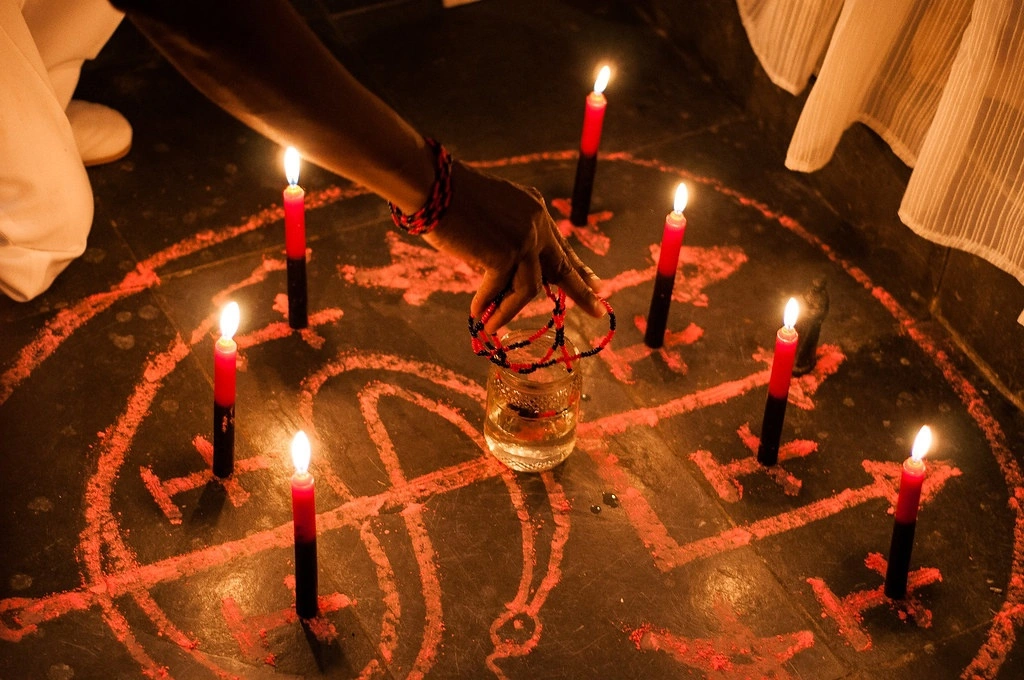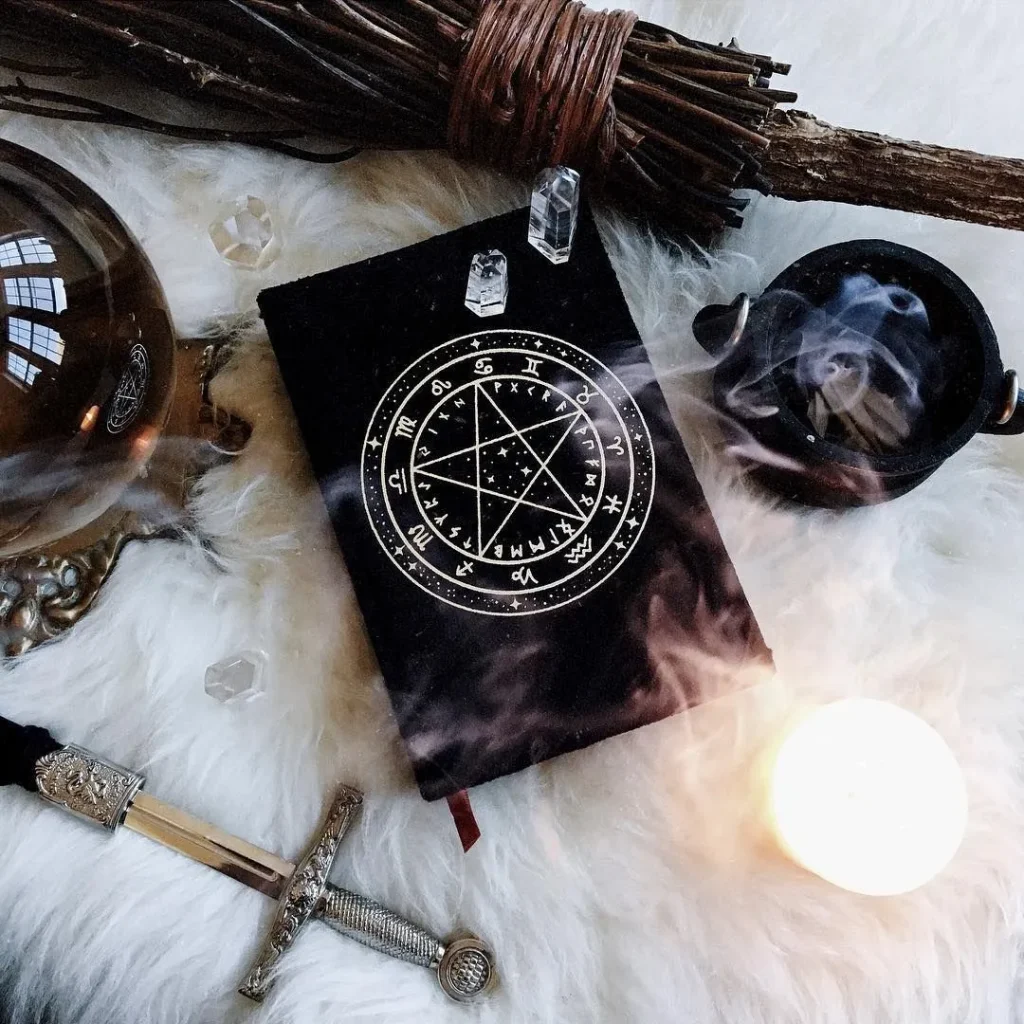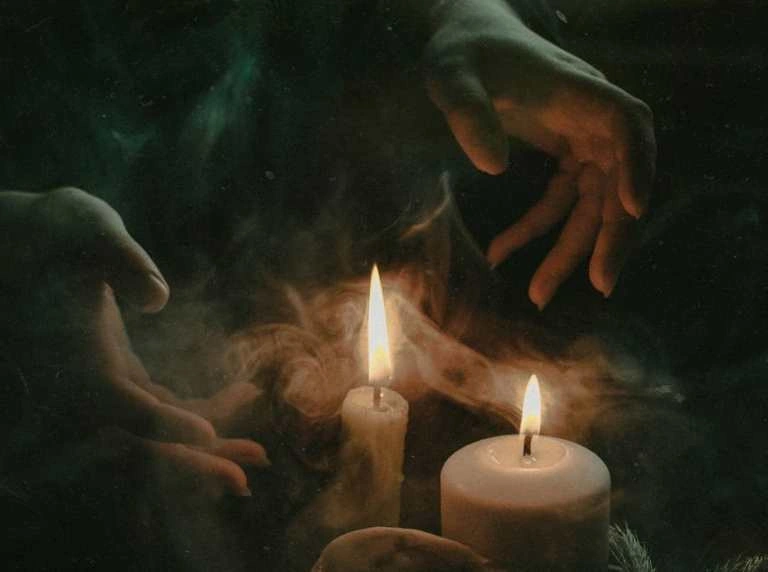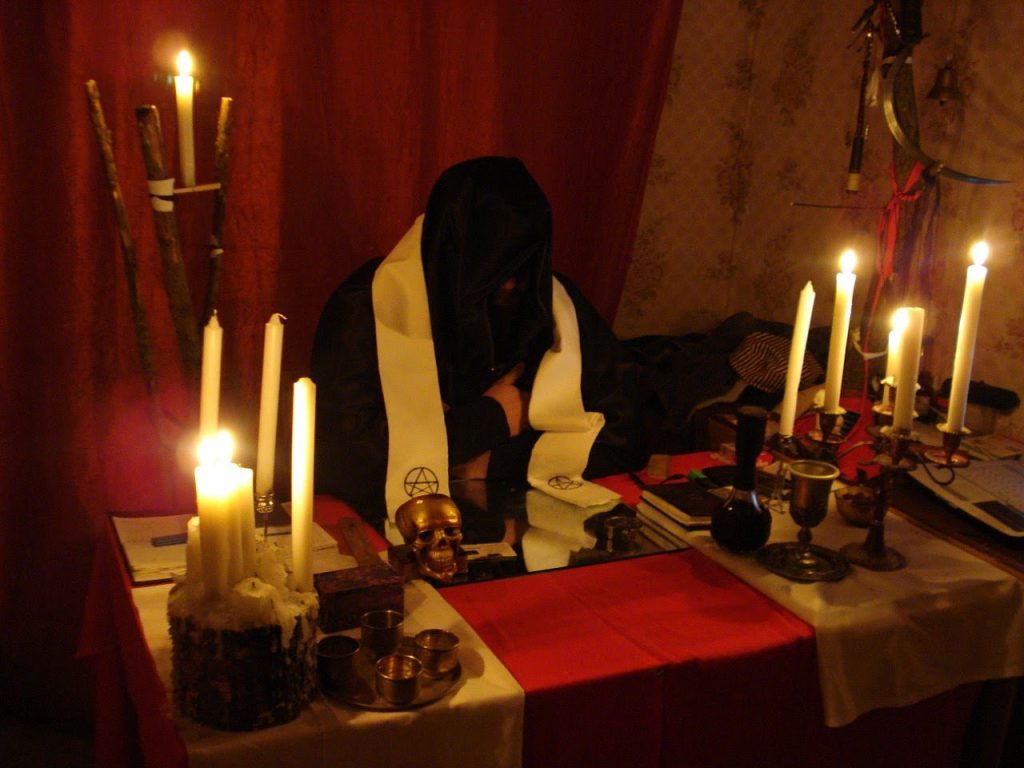The effectiveness of witchcraft, like many other belief systems and practices, is a subject of debate and often depends on one’s perspective and personal beliefs. Witchcraft encompasses a diverse range of traditions and practices, and its perceived efficacy can vary widely among practitioners and observers. In Witch Symbols, we will give you some key points to consider:
Understanding the Practice of Witchcraft
Witchcraft, often steeped in mystery and intrigue, is a practice that has captured the attention of many throughout history. But what exactly does witchcraft entail? Many misconceptions surround this ancient practice, but at its core, witchcraft is the belief in harnessing personal power to create change in the world. From casting spells and performing rituals to tapping into elemental energies, witches utilize various tools and techniques to manifest their intentions.
Contrary to popular belief, witchcraft is not synonymous with supernatural abilities or casting hexes on unsuspecting individuals. Instead, it is a deeply personal and spiritual practice that varies from individual to individual. While some may find solace in communing with nature and connecting with the cycles of the moon, others embrace traditional rituals passed down through generations. Ultimately, the effectiveness of witchcraft lies in the belief and intent of the practitioner. So, does witchcraft work? It is a question that sparks debates and discussions among believers and skeptics alike. While scientific evidence may be lacking, the profound experiences and transformations reported by practitioners throughout history continue to suggest that there is indeed power in the practice of witchcraft.


History and Origins of Witchcraft
Witchcraft, with its intricate tapestry of beliefs and practices, has a rich and diverse history that stretches back centuries. Across different cultures and regions, the origins of witchcraft can be traced through ancient texts, folklore, and archaeological findings. From the cunning folk of Europe to the shamans of indigenous tribes, the concept of connecting with the spirit realm and harnessing its power has been a common thread throughout history. Throughout the ages, witches have been viewed in various lights – as wise healers, powerful conjurers, or malevolent sorceresses. While the specific historical origins of witchcraft remain subject to debate, its existence and cultural significance cannot be denied.
One fascinating aspect of the history of witchcraft is how it has often been intertwined with religious beliefs. In ancient times, pagan religions worshipped deities associated with nature and magic, and practitioners would often use spells and rituals as a way to communicate with these divine forces. However, as organized religions like Christianity rose in prominence, witchcraft became increasingly stigmatized as a form of heresy or devil worship. The persecution of witches reached its peak during the witch trials of the 16th and 17th centuries, particularly in Europe and colonial America, where thousands of people, mostly women, were accused and executed. This dark period in history reflects the fear and ignorance that surrounded the practice of witchcraft and highlights the ongoing struggle for acceptance and understanding.
The Different Beliefs and Traditions Within Witchcraft
Witchcraft is a practice that encompasses a wide range of beliefs and traditions. One of the most well-known beliefs within witchcraft is the belief in a higher power or divine energy. Practitioners may refer to this energy as the Goddess, the God, or by other names that resonate with their individual spiritual path. This belief in a divine energy forms the foundation of many witchcraft traditions and influences the rituals, spells, and practices that are performed.
In addition to the belief in a higher power, witchcraft also encompasses a vast array of traditions. These traditions can vary greatly depending on cultural, regional, and personal influences. For example, there are witchcraft traditions rooted in Celtic, Norse, and African spirituality, among many others. Each tradition brings forth its own unique practices, rituals, symbolism, and folklore, offering practitioners a diverse range of options to explore and incorporate into their craft. Whether it’s the use of herbs, crystals, astrology, or divination tools, the different beliefs and traditions within witchcraft provide practitioners with a rich tapestry of spiritual practices to draw from.
The Power of Spells and Rituals in Witchcraft
Spells and rituals are an integral part of the practice of witchcraft and have been used for centuries to harness and direct energy for various purposes. These powerful tools are often the cornerstone of a witch’s practice, allowing them to manifest their intentions and create change in the world around them. Spells, in particular, are carefully crafted incantations or actions that are performed with the intention of bringing about a desired outcome. They can range from simple affirmations or visualizations to more elaborate ceremonies involving specific ingredients and tools. Regardless of their complexity, the key principle behind spells is the belief that, through focused intention and the manipulation of energy, witches can tap into the natural forces of the universe and effect change in accordance with their will.
Rituals, on the other hand, are structured ceremonies or practices that are often performed to mark a significant event or to connect with higher powers. These rituals may involve a combination of physical actions, such as dancing, chanting, or the use of specific symbols or objects, to create a sacred space and heighten the practitioner’s awareness and connection to the spiritual realm. In witchcraft, rituals are not only performed for personal empowerment or spiritual growth, but also to honor the cycles of nature, celebrate the seasons, and pay homage to deities or spirits. They provide a framework for practitioners to channel their energy and intentions, and can be deeply transformative experiences that foster a sense of connection, purpose, and reverence.


The Role of Intention and Energy in Witchcraft
Intention and energy play an integral role in the practice of witchcraft. The intentions that a witch sets when performing spells or rituals are crucial in determining the outcome. Whether it is a love spell, a protection spell, or a manifestation ritual, the intentions must be clear, focused, and aligned with the desired outcome. The energy that a witch brings to their practice is also paramount. It is believed that the energy we emit impacts the effectiveness of our spells and rituals. By honing and directing their energy, a witch is able to harness the natural forces of the universe and bring their intentions to fruition.
In witchcraft, the concept of energy is multi-faceted. It is seen as the life force that exists within all living beings, as well as the energy present in the elements and the cosmos. It is this energy that witches tap into and manipulate to create their desired outcomes. They work with various tools, such as crystals, herbs, and candles, to enhance and direct the energy. Through focused intention and the channeling of energy, witches are able to bring about positive changes in their lives and the lives of others. The role of intention and energy in witchcraft is a testament to the power and potential that lies within each practitioner.
Debunking Myths and Misconceptions About Witchcraft
One common misconception about witchcraft is that it is inherently evil or associated with dark, malevolent forces. However, this belief is largely rooted in the historical persecution of witches, which was often fueled by religious or cultural biases. In reality, witchcraft is a diverse and complex practice that can encompass a wide range of beliefs and traditions. While some witches may work with energies and forces that may be considered darker or shadowy, the vast majority of witches adhere to ethical guidelines and focus on harnessing their power for positive purposes, such as healing, personal growth, and spiritual enlightenment.
Another myth about witchcraft is that it involves worshiping a devil or any form of satanic figure. This misconception is often perpetuated by popular media and religious stereotypes. In truth, witchcraft is not a religious practice in itself, but rather a spiritual path that can be combined with various belief systems, such as Wicca, Paganism, or other earth-based traditions. Witches may worship deities from ancient pantheons, connect with nature spirits, or focus on personal connection with the divine. It is important to remember that witchcraft, like any spiritual practice, is deeply personal and can vary greatly from individual to individual.
The Personal Experiences and Testimonials of Practitioners
Practitioners of witchcraft often share their personal experiences and testimonials, offering insights into the profound impact this practice can have on their lives. Many individuals have reported increased self-awareness and spiritual connection through engaging in various rituals and spells. These experiences allow practitioners to tap into their inner strength and embrace their true potential, empowering them to manifest their desires and create positive change in their lives. The testimonials of these individuals reveal a common theme of personal growth, as they navigate the realms of energy, intention, and ancient wisdom.
One common aspect highlighted in these testimonials is the transformative nature of connecting with nature and the elements. Practitioners often describe a deep sense of connection to the earth, the moon, and the natural cycles of life. By aligning themselves with these energies, they find themselves more attuned to the rhythms of the universe and experience a heightened sense of harmony and balance. These experiences foster a deeper understanding of the interconnectedness of all living beings and the power of harnessing natural forces for healing, manifestation, and spiritual growth. The personal experiences and testimonials of practitioners shed light on the profound impact that witchcraft can have on one’s journey towards self-discovery and empowerment.


Ethical Considerations in the Practice of Witchcraft
When it comes to the practice of witchcraft, ethical considerations play a crucial role. One of the key principles followed by many practitioners is the Wiccan Rede, which states, “An it harms none, do what ye will.” This means that practitioners are encouraged to act in ways that do not cause harm to themselves, others, or the natural world. This ethical guideline emphasizes the responsibility practitioners have for their actions, reminding them to consider the potential consequences and effects of their spells, rituals, and other practices.
Respecting the autonomy and free will of others is another ethical consideration within the practice of witchcraft. This means that practitioners should refrain from using their craft to manipulate or control the thoughts, feelings, or actions of others without their consent. It is important to recognize and honor each individual’s right to make their own choices and decisions. By upholding this ethical principle, practitioners can maintain a sense of integrity in their practice and ensure that their actions align with ethical standards.

